On-site Differences: Working while Vacationing
Ishizaka: Let's move on to the second episode: Pigeon by Mr. Isao Yukisada. You filmed entirely in Penang, Malaysia and I heard that the filming styles were very different than those in Japan. How was that?
Yukisada: Well, for starters, the Malaysian crew do come on time, but they always start the day off with group photographs [smiling], while the Japanese crew would arrive ten minutes or even thirty minutes before and they'd be meticulously preparing everything for the day. So at first, we couldn't start on the same page, obviously: the Malaysian crew took their time and used time sparingly, and the Japanese crew were preoccupied with not wasting a second.
Also, during the first half of the shoot, there was an incident where Sharifah [Amani], the actor who played Yasmin, got really upset. Mr. Masahiko Tsugawa, the Ojichan in the film, was in character right from when he arrived in Malaysia. He plays a character who doesn't want to talk to anybody; he'd lost weight - I think about 5 kilograms - and he doesn't speak a word. You'd say "hi" to him, and he'd just glare at you. So Sharifah was so distraught that she thought he disliked her. She'd call to him, "Ojichan" - the Japanese that she'd worked so hard to master - and time and time again he would just glare at her, making her shrink every time. I was watching them, seeing their "interaction" and felt that it was very real. So I left them like that, but after about three days she finally started crying. She told me that this has never happened before, that in Malaysia everyone gets together and overcomes the scenes of the day as a group. The Japanese crew, on the other hand, she said, don't seem to be enjoying themselves at all. I mean, I'm always frowning too [smiles].
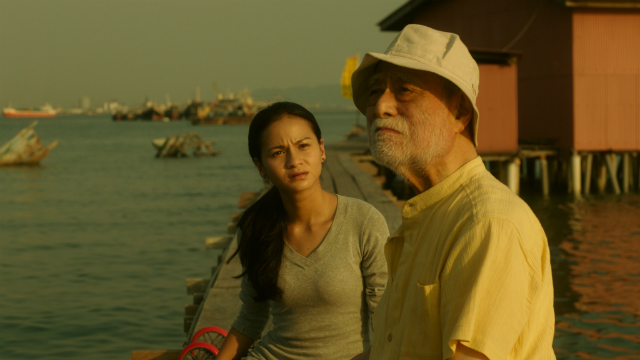
Film still, Pigeon
So she called her mother who is also an actor and asked for her advice. She probably wanted some consolation, but apparently her mother said, "You're working with foreigners, of course they have different ways. You have to fall into their arms." The certain tension in the air that builds during shoots - to not just be "having fun" as the actor enters the frame, but to shoot a scene with everything they've got; I think the Malaysian crew gradually began to sense that. They begin to wonder, "Why are they so tense?" I think that was one of the first ways we began to really "interact."
Another incident with the pigeon pen. The pen that the Malaysian crew made was completely clean; it was spotless [laughs]. I mean, there are pigeons in there so it should be dirty and covered in droppings. I explained that on set and they said, "We'll do it now." In Japan, the crew would keep pigeons in there a month prior or find a real pigeon pen. I also had a hand in making the pen dirty, under the scorching sunlight. I looked up and everyone else is in the shade, while one member came to hold a parasol over my head as I messed up the pen. And I overhear the crew members saying things like, "wow, Japanese directors can do everything" [laughs]. But there's no use in getting angry; actually I didn't even get angry to be honest because I know that they love making films and they are having fun. That's something we Japanese have to learn, I think. We are a very serious lot, so even during shoots we're under a lot of pressure and we show that; we show how much stress we're under. But it's that sense of excessive responsibility that makes the atmosphere on set dull.
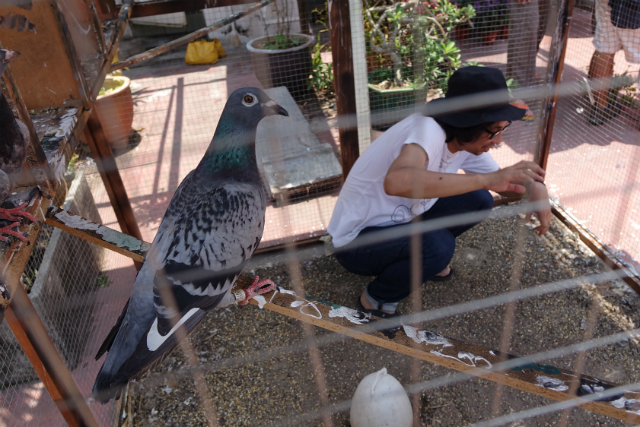
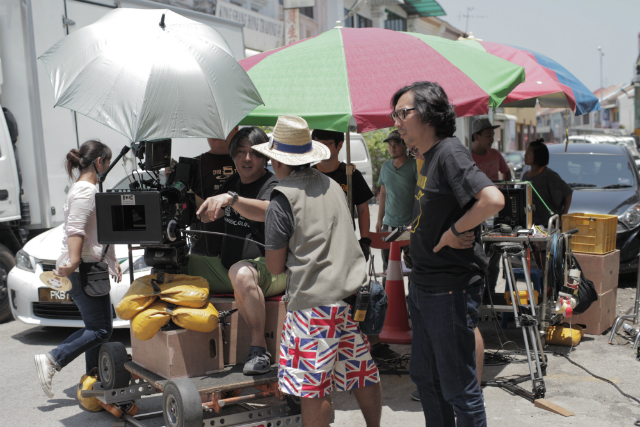
Ishizaka: I agree. I joined the shoots in both Malaysia and the Philippines, and I also noticed that the crew in both countries really seemed to be enjoying every moment of it. Even film students in Japan are very serious and tense on shoots, so I am amazed at the difference; at how much fun you can actually have on set.
Mendoza: You're both absolutely right. In the Philippines, and also in Cambodia I presume, we film as if we're on vacation. And after every scene, we take group photos with the actors and in no time they're up on Facebook [laughs]. So I imposed a gag order this time, to not upload any photographs onto Facebook until we finish filming.
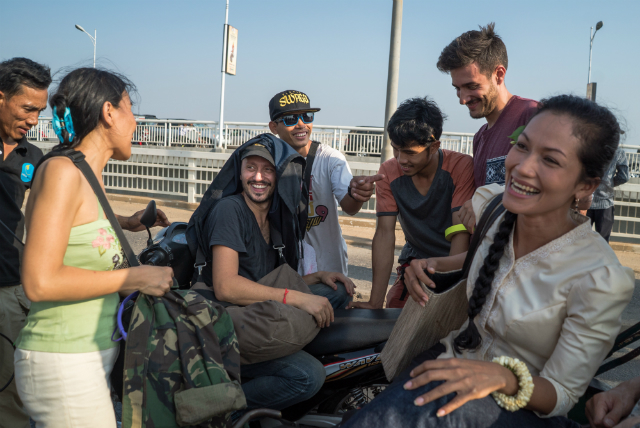
Sotho Kulikar (hereinafter Kulikar) : It's the same in Cambodia; we also take pictures on set and the next minute they're all up on Facebook [smiles].
Ishizaka: Mr. Yukisada, I guess you have to work with them to see these habits and cultures.
Yukisada: Another thing I wanted to share with you: pigeons in Malaysia do. not. fly. [All laugh]. In Dante's film, a pigeon flies after a gunshot, and that overlaps with a pigeon flying the Malaysian sky and an old man watches them from his balcony. There is supposed to be that tie, but at a pigeon farm in Malaysia, we let one fly but it immediately fell to the ground [laughs].
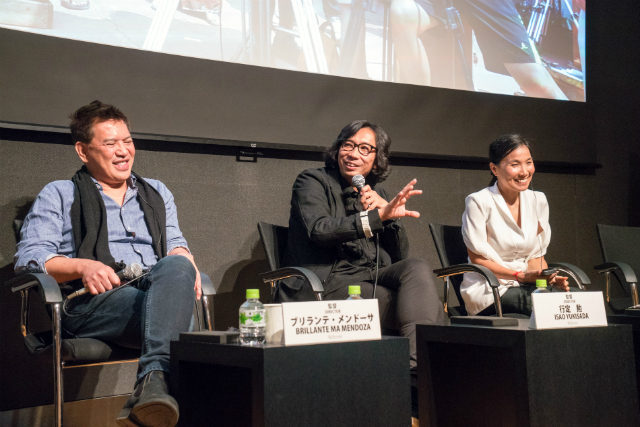
Remember the scene by the beach where a flock of pigeons flew beautifully against the sky? Initially, when we opened the cage, some waddled out, but that was it. The second take, they flew out to sea but then fell into the water. I hadn't even said, "cut," when the crew members rushed out and swam right in to save all of them. They are very kind people, Malaysians [laughs]. Finally, we had to get Mr. Tsugawa and Sharifah to pretend to see them fly. The pigeons you saw flying are actually in Japan. We matched up all the angles and lenses and shot that scene in Kujukuri-hama beach. So it's the sky in Chiba Prefecture. We're lucky we now have the technology to make a composite, but my advice to you all is, "Do your research!" [All laugh]






